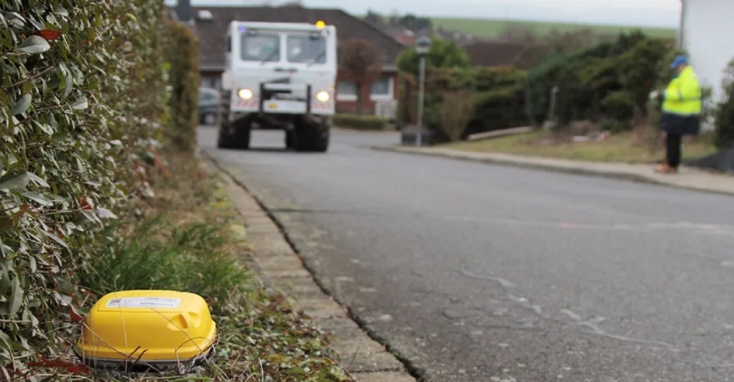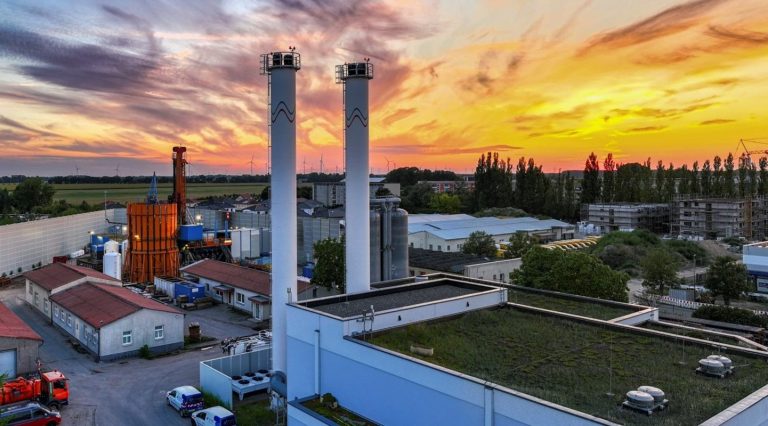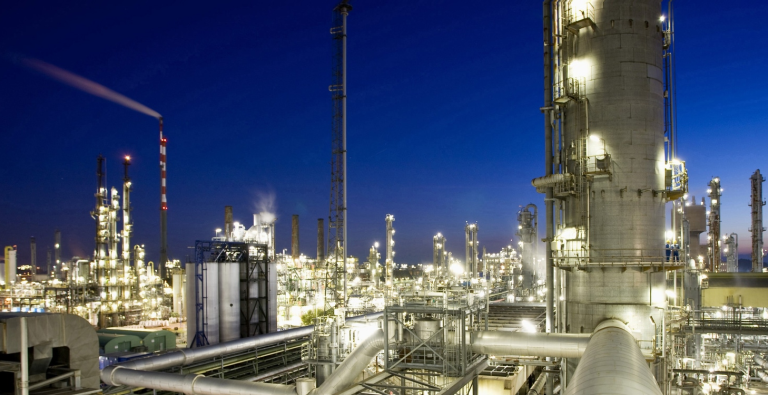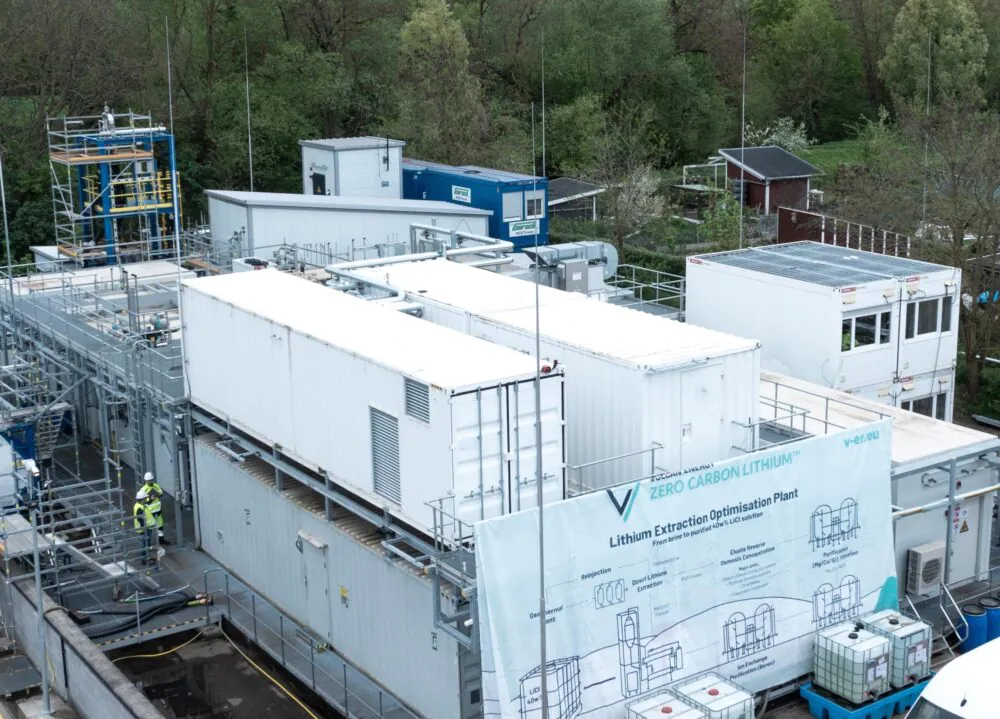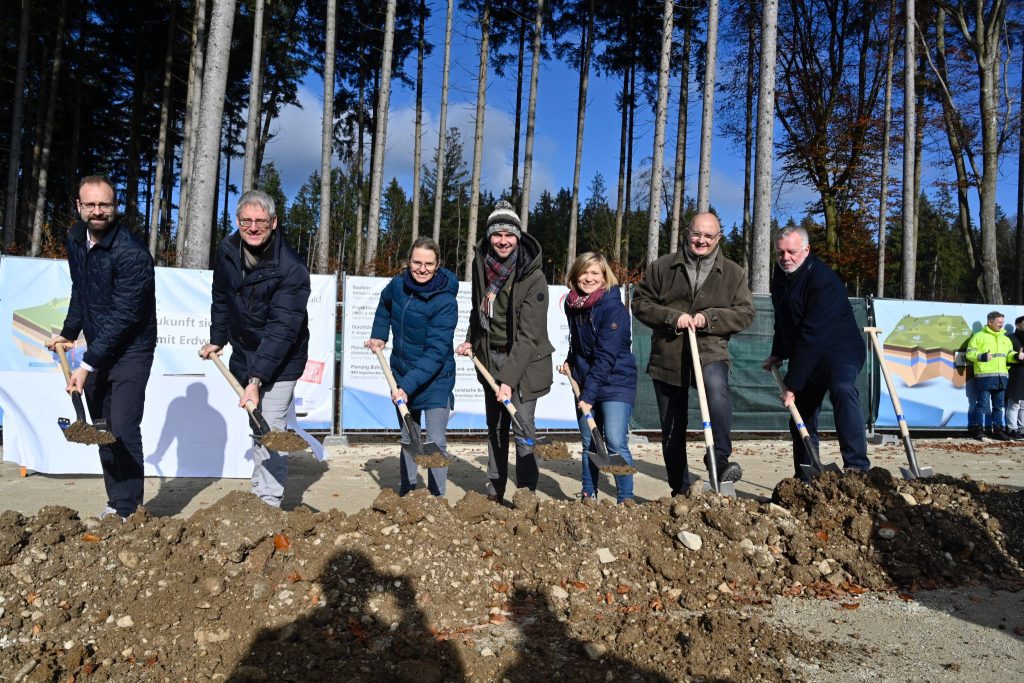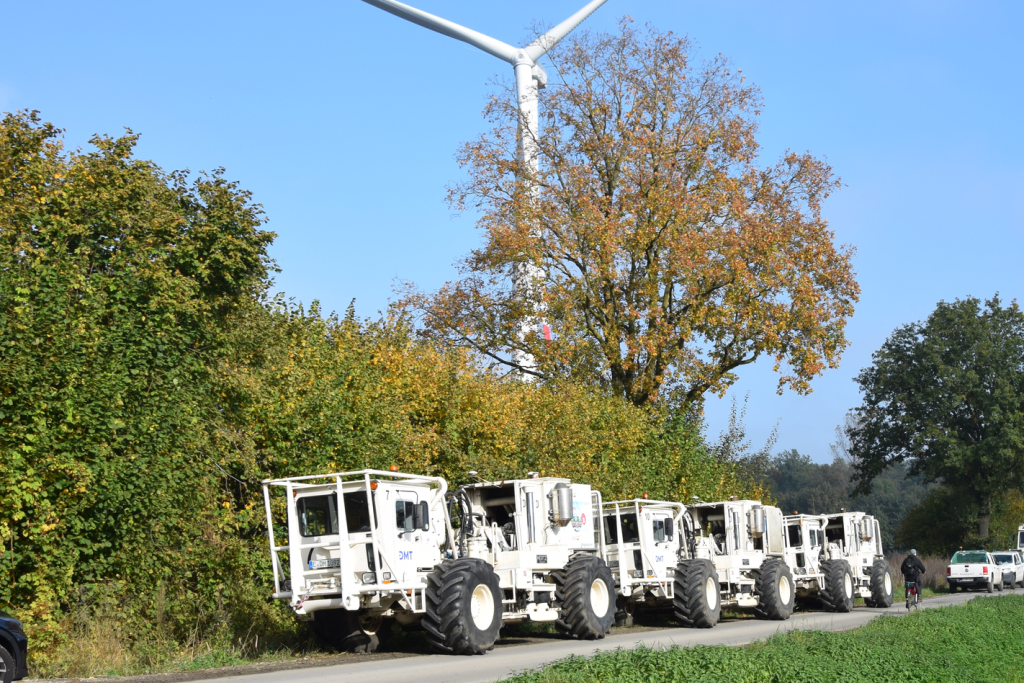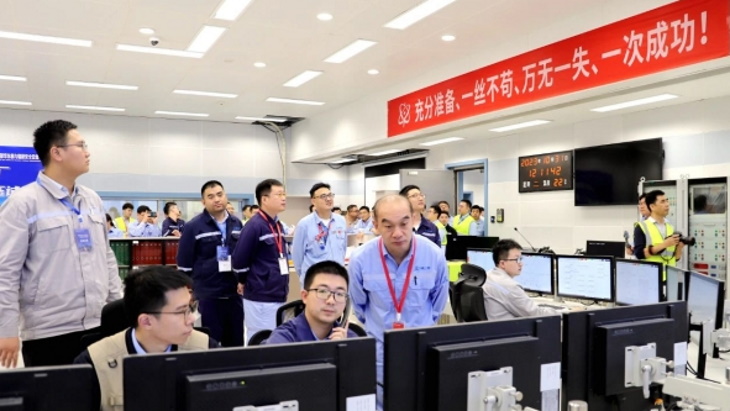
Cold functional tests are carried out to confirm whether components and systems important to safety are properly installed and ready to operate in a cold condition. The main purpose of these tests is to verify the leak-tightness of the primary circuit and components - such as pressure vessels, pipelines and valves of both the nuclear and conventional islands - and to clean the main circulation pipes.
China National Nuclear Corporation (CNNC) announced that the final test - in which the pressure in the primary loop is held at 22.3 MPa for 10 minutes - was successfully completed on 31 October.
"The successful test of the installation quality of related equipment pipelines means that the unit has fully entered the commissioning stage after completion of installation," CNNC said. "At the same time, it has also laid a solid foundation for the follow-up hot test, fuel loading and grid-connected power generation of the unit."
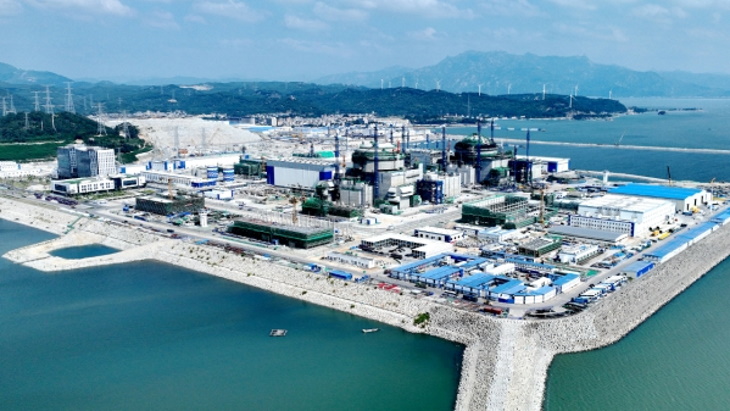
The construction site of Zhangzhou 1 and 2 (Image: CNNC)
China's Ministry of Ecology and Environment issued construction licences for Zhangzhou units 1 and 2 on 9 October 2019 to CNNC-Guodian Zhangzhou Energy Company, the owner of the Zhangzhou nuclear power project, which was created by CNNC (51%) and China Guodian Corporation (49%) in 2011. Construction of unit 1 began one week after the issuance of the construction licence, with that of unit 2 starting in September 2020. The units are scheduled to enter commercial operation in 2024 and 2025, respectively.
CNNC said Zhangzhou unit 1 is the first Hualong One batch construction project. The first two demonstration units of CNNC's version of the Hualong One design at the Fuqing plant in Fujian province have both already started up. Unit 5 entered commercial operation on 30 January 2021, with unit 6 following on 25 March 2022. CNNC is also building two Hualong Ones as units 3 and 4 of the Changjiang plant, in Hainan province, construction of which began in March 2021 and December 2021, respectively.

